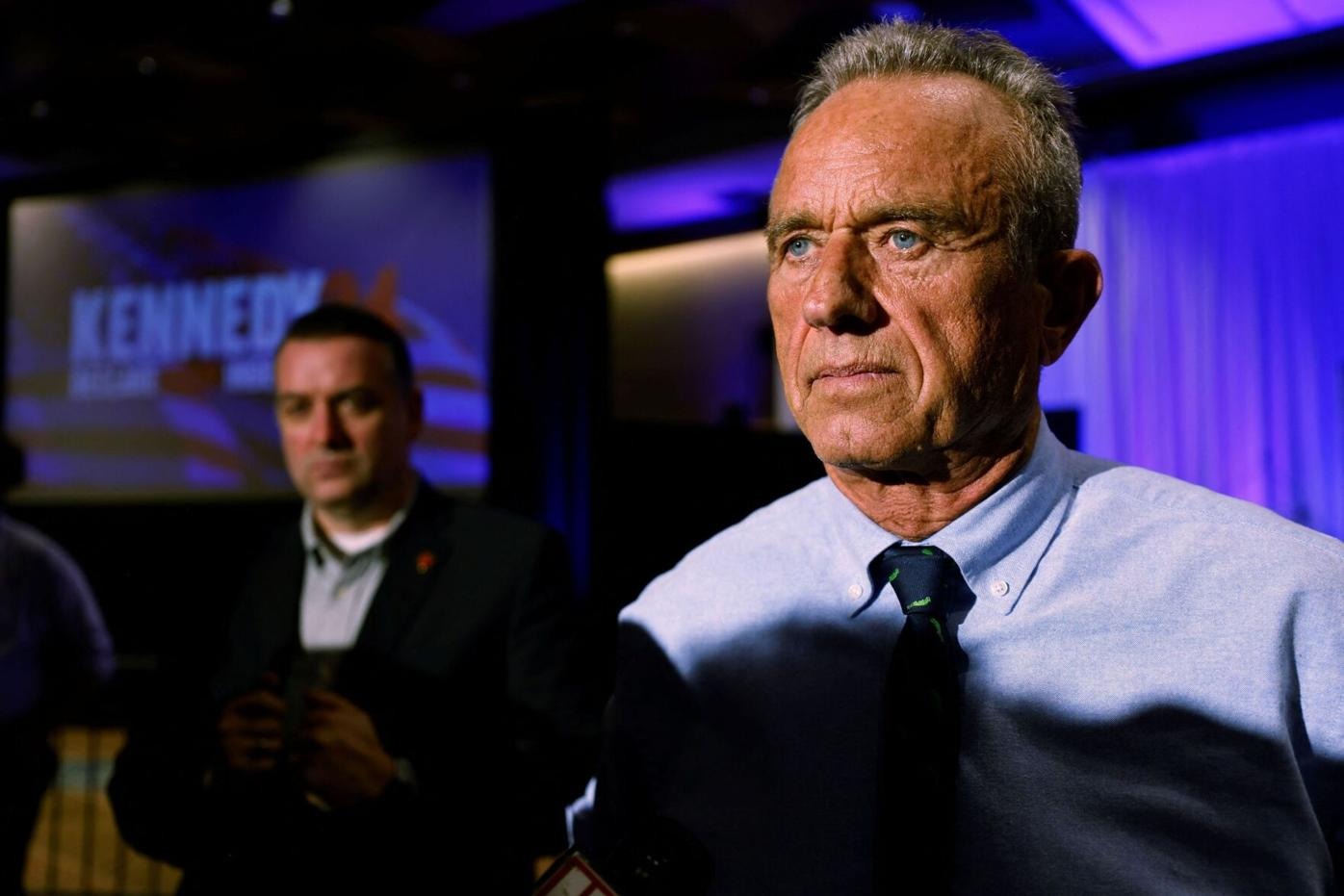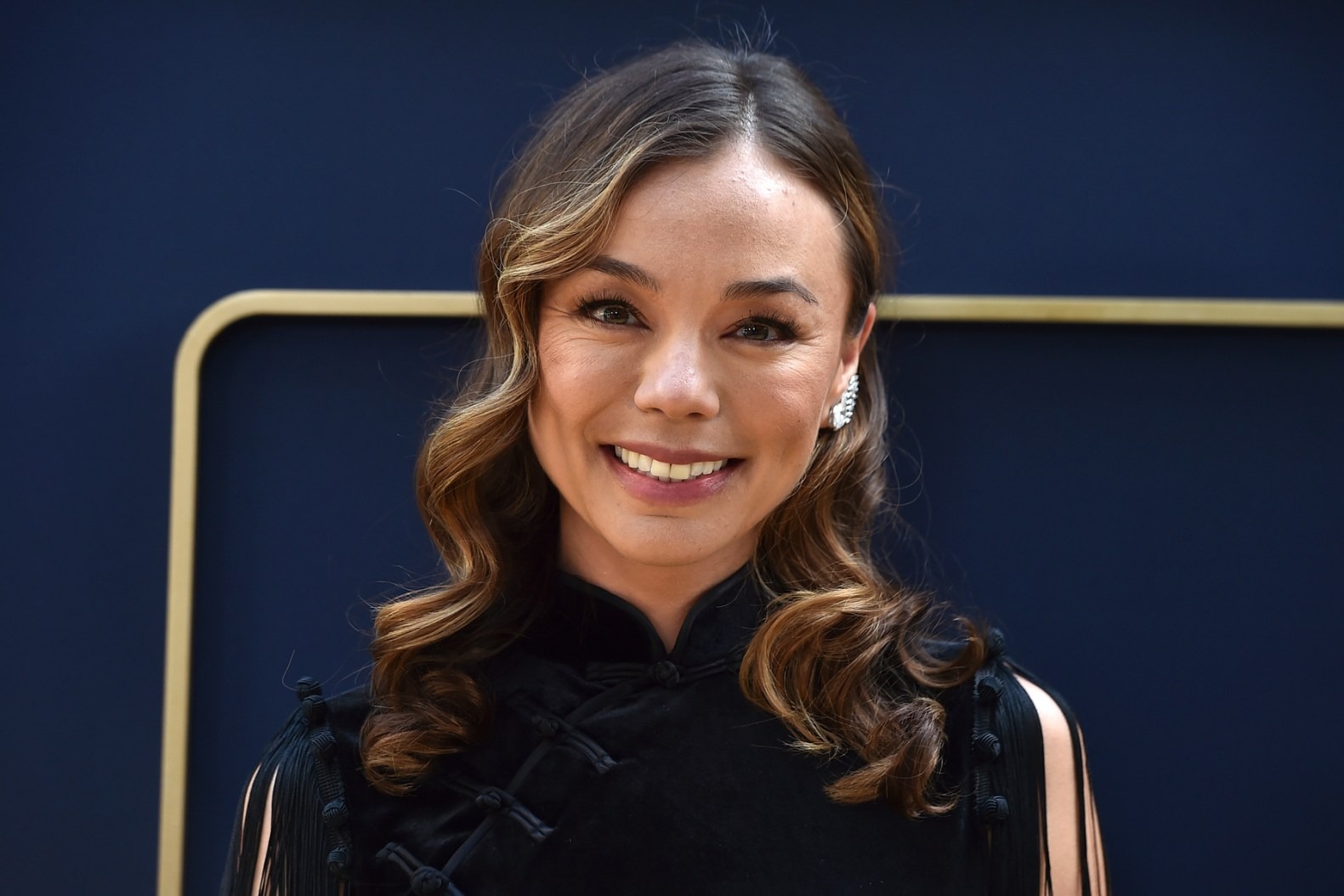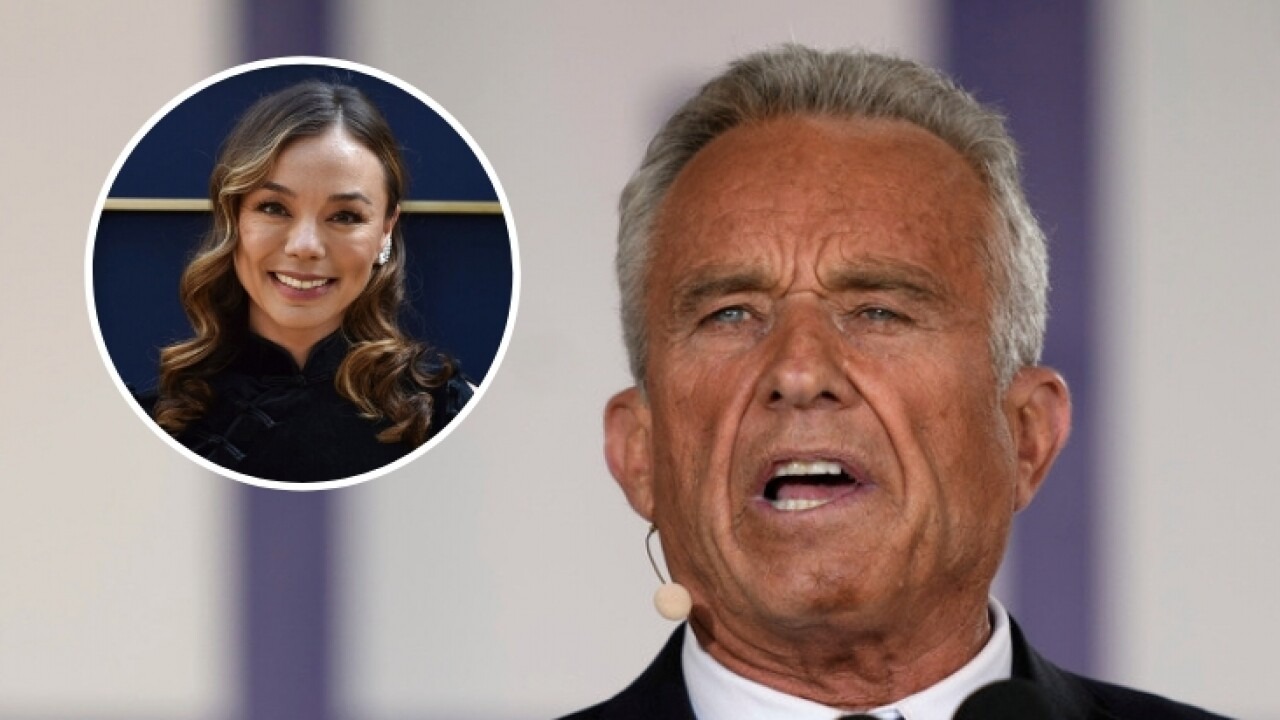Independent presidential hopeful Robert F. Kennedy Jr. is poised to unveil his pick for running mate on Tuesday, as The New York Times reported, citing sources close to his campaign.
This announcement represents a pivotal juncture for Kennedy’s presidential aspirations, potentially propelling his quest to secure ballot access across all 50 states.
The chosen vice-presidential candidate, to be revealed at an event in Oakland, California, bears the responsibility of broadening Kennedy’s appeal and bolstering fundraising efforts for his ambitious campaign.

Robert F. Kennedy (Credits: WKOW)
In discussions with CNN earlier, Kennedy indicated that his decision regarding a running mate had been made. Among the individuals considered were Nicole Shanahan, attorney and entrepreneur, former Minnesota Governor Jesse Ventura, NFL quarterback Aaron Rodgers, former Democratic Representative Tulsi Gabbard, Republican Senator Rand Paul, former presidential contender Andrew Yang, former TV host Mike Rowe, motivational speaker Tony Robbins, and civil rights attorney Tricia Lindsay.
Kennedy highlighted Oakland’s importance and resonance, citing his father’s successful presidential campaign in 1968. Two candidates from Kennedy’s shortlist have notable ties to the Bay Area: Shanahan, born in Oakland and previously married to Google co-founder Sergey Brin, and Rodgers, born in Chico, California, and an alumnus of the University of California, Berkeley.
While traditional presidential candidates usually unveil their running mates closer to their party conventions, Kennedy’s move advances his campaign’s ballot access initiatives. With 23 states poised for signature collection upon the vice-presidential announcement, Kennedy aimed for nationwide ballot qualification, albeit currently only secured in Utah.
Despite progress in states like New Hampshire, Nevada, and Hawaii, challenges loom. In Nevada, an administrative error threatens ballot access, while Democrats raise objections and file complaints regarding campaign finance violations and alleged coordination with Kennedy’s campaign.
The speculation surrounding Kennedy’s vice-presidential pick offers little insight into his targeted voter demographic. He emphasizes alignment with his values, optimism for the country’s future, and readiness to lead.

Nicole Shanahan (Credits: Rolling Stone)
Reports of discussions with Rodgers unveiled controversy, with private conversations surfacing conspiracy theories about the Sandy Hook Elementary School shooting. Rodgers clarified his stance, distancing himself from such theories.
Similarly, discussions with Robbins in 2023 concluded that Robbins had declined to run for public office then. Kennedy’s candidacy, marked by advocacy against public health mandates and corporate influence, has garnered a niche following. His departure from the Democratic primary last fall reflects a rejection of the two-party system’s limitations.
As Kennedy explores potential collaboration with the Libertarian Party, questions linger regarding his impact on the electoral landscape. Polls indicate necessary support in key states, particularly among voters disillusioned with both major-party candidates.
Analysts suggest Kennedy’s running mate may aid fundraising efforts amid the rigorous ballot qualification process and the looming general election showdown against Biden and Trump, who currently outpace Kennedy’s fundraising. Kennedy maintained that wealth isn’t decisive in selecting a running mate, emphasizing alignment with his values and vision for the nation’s future.























